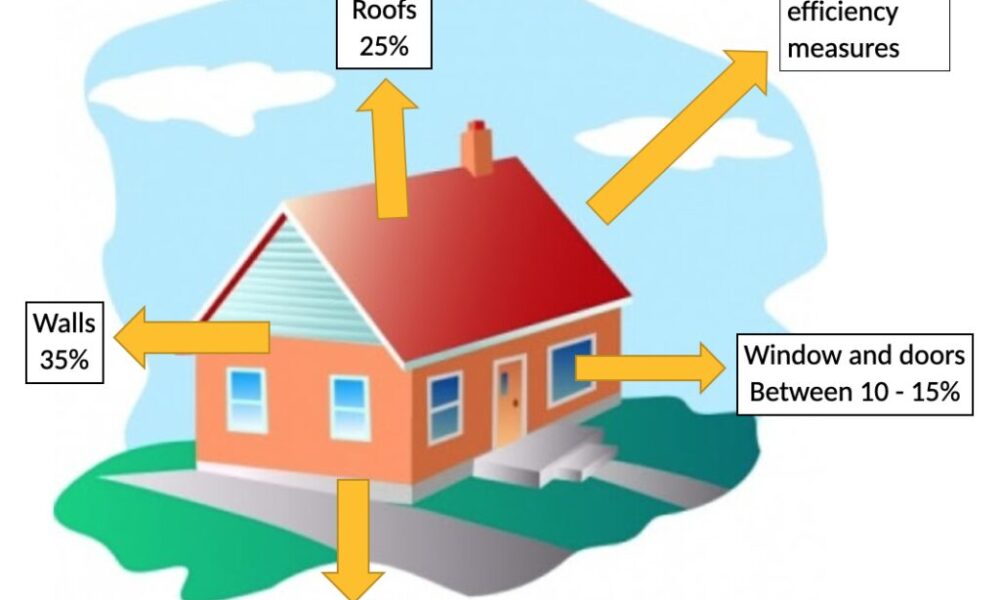Key Takeaways:
- Insights into the vital role of basement waterproofing in preserving home health and structure.
- In-depth analysis of various waterproofing methods and the science behind them.
- Comparison of DIY approaches versus professional waterproofing services.
- Evaluation of the financial benefits and potential savings from waterproofing work.
- Guidance on identifying early signs of basement water damage and choosing the right contractors.
Why Basement Waterproofing Is Essential for a Healthy Home
A home is one of the most significant investments for many people, not just financially, but as a cornerstone for family life and personal well-being. Therefore, preserving its integrity against elements that might cause damage is fundamental. Basement waterproofing emerges as a vital component in this preservation exercise, particularly in locales where the environment poses additional challenges due to higher humidity or rainfall levels, such as the diverse climate of New Jersey. For residents interested in ensuring the longevity of their living spaces, exploring options for basement waterproofing in New Jersey must be a priority.
Why is basement waterproofing held in such high regard? The basement forms the foundation of a home. It is continuously susceptible to the ingress of water, which not only fosters the growth of detrimental mold and mildew but can also undermine the structural integrity of the building. Persistent dampness in the lower levels of a house can contribute to and exacerbate various health concerns, particularly respiratory ones. Allergic reactions and asthma are often aggravated by poor air quality resulting from mold spores and excess humidity—the prevention of which relies heavily on effective waterproofing measures.
The Science Behind Basement Waterproofing Techniques
The basement waterproofing process encompasses various techniques specifically tailored to address different ways water might infiltrate a basement area. While some methods focus on diverting water away from the foundation externally, others prioritize managing water that has already penetrated the interior spaces. Interior sealants, for instance, block the pores in the concrete and masonry, thus preventing moisture absorption. Drainage systems strategically positioned around the perimeter of the basement collect excess water and expel it away from the foundation, thereby preventing water accumulation.
In contrast, exterior waterproofing methods are comprehensive and involve excavating around the home to install a waterproof membrane around the exterior walls. This robust approach stops water from entering and directs it away from the structure’s base. Regarding the materials used, polymer-based products and rubber coatings are favored for their durability and effectiveness. These waterproof barriers are designed to withstand hydrostatic pressure and soil pH variations while providing a flexible and reliable defense against moisture.
Given the complexity and variety of waterproofing applications, homeowners must receive a professional assessment. Factors influencing the recommended waterproofing method include regional climate, soil type surrounding the home, home architectural features, and any pre-existing water damage. Experts’ in-depth examination ensures that each home receives a solution best suited to its unique context, thereby securing the waterproofing’s efficacy and longevity.
Comparing DIY Versus Professional Waterproofing Solutions
When it comes to the execution of waterproofing strategies, homeowners often grapple with the decision of whether to undertake the project themselves or to engage professional services. DIY waterproofing is a tempting option for those who are hands-on or wish to save on costs. A wealth of information and tutorials is available, and many local hardware stores carry a range of waterproofing products. Yet, going the DIY route demands a profound understanding of waterproofing principles and a willingness to tackle the process’s labor-intensive and often complex aspects. The risk of incorrectly applying waterproofing materials or failing to address the core source of water ingress looms large, and such missteps can ultimately result in the need for even more expensive remediation efforts later on.
While initially appearing costlier, professional waterproofing services impart expertise and assurance that is difficult to replicate in a DIY context. Professional waterproofers possess the tools, knowledge, and experience to diagnose underlying issues accurately and apply solutions that are both thorough and tailored to your home’s specific needs. These professionals will not only carry out the work with greater precision but also often provide warranties and follow-up support, contributing to a homeowner’s confidence in the durability of their basement waterproofing solution. Opting for a professional service can ensure your property is outfitted with a comprehensive, enduring waterproofing system that secures your investment and spares you future headaches.
The Impact of Climate on Your Basement Waterproofing Strategy
A comprehensive waterproofing strategy must consider the prevailing climate, as different weather patterns can exert varying degrees of stress on a home’s defenses against moisture. Regions with abundant precipitation, rain, or snowfall necessitate a solid and resilient waterproofing system. The increasing frequency of severe weather events adds another layer of complexity to basement waterproofing, making it crucial for contemporary homes to be prepared for various climatic changes.
Adapting your basement waterproofing to counter environmental dynamics is a task that requires both vigilance and flexibility. Proactive maintenance, such as periodic inspections and clear guttering, can significantly ensure that waterproofing measures withstand seasonal variations and continue to provide protection effectively. Homeowners must be aware of how the shifting seasons affect their waterproofing installations, making adjustments to ensure their systems are up to the task, whether facing summer downpours or winter snowmelt. Therefore, to guarantee a robust and adaptable defense against the ever-changing elements, seeking expert guidance is paramount. Professional service firms like Adam Basement can help ensure your waterproofing strategy is built to last through all weather conditions.
The Financial Implications of Basement Waterproofing
Weighing the costs and benefits of basement waterproofing is a consequential task for homeowners. The initial expenses can be considerable, but these should be appraised against the high costs of repairing water damage, which can be far more than preemptive waterproofing measures. Long-term financial considerations also come into play; the value of waterproofing extends far beyond the immediate, offering significant savings by forestalling the need for future repairs and potentially increasing a home’s market value. Waterproofing can even influence home insurance premiums, as insurers may reduce rates for homes less likely to incur water damage claims due to effective waterproofing systems.
Beyond the direct costs of materials and labor, it’s essential to factor in the non-monetary benefits of waterproofing. These include the comfort of a dry and usable basement space and the prevention of inestimable sentimental item loss due to water damage. When contemplating the worth of waterproofing, homeowners should consider both the tangibles and intangibles, ensuring a holistic perspective on this vital home improvement project.
Uncovering Hidden Signs of Basement Water Damage
Identifying early indicators of water intrusion in the basement can be challenging, mainly if the signs are subtle or develop gradually over time. Awareness of the most common signs is crucial. Water stains on walls and flooring, efflorescence (a white, powdery substance on concrete surfaces signifying evaporated water), and rust on metal fixtures, indicating extended exposure to moisture, are a few examples. Homeowners may also notice a persistent musty smell, a telltale sign of mold growth that often accompanies unnoticed water damage. Should you come across mold growth, it’s essential to reach out to mold removal services to handle the issue.
Regularly inspecting your basement, paying particular attention to corners, around windows, and near any pipes or appliances, is critical for early detection. Should you encounter any of these red flags, responsive measures should be taken promptly. Simple remedies, such as resealing cracks or improving exterior drainage, may suffice in the short term. However, if water damage appears extensive or the cause is not immediately evident, seeking professional assessment is advisable to ensure comprehensive treatment and to prevent recurrence.
Long-Term Benefits of Waterproofing Your Basement
The decision to waterproof a basement yields benefits extending far beyond the immediate enhancement of the home’s environment. A dry and secure basement offers additional living space or safe storage, but the advantages are open to more than present-day practicalities. Implementing basement waterproofing is an investment in the sustainability of your property, contributing to the health of your home in the long term.
Waterproofing provides a protective barrier between your home and the surrounding ground, reducing the likelihood of foundation problems that could lead to expensive structural repairs. By insulating against moisture, waterproofing also promotes energy efficiency, minimizing environmental impact and utility costs. Ultimately, a well-executed waterproofing job does more than preserve a basement—it endows the home with a formidable line of defense against the many challenges presented by our evolving climate.
Choosing the Right Waterproofing Contractors
The complexity of basement waterproofing necessitates experienced professionals with a proven track record. Homeowners should do their homework, gather a list of possible contractors, and assess each one’s reputation and credentials. As these elements can offer long-term security and peace of mind, it is crucial to confirm that the contractor is insured and licensed and offers warranties on their work. An invaluable way to assess a contractor’s quality of work, dedication to client satisfaction, and waterproofing solution efficacy is to read through the experiences and testimonials of previous clients.
In addition to seeking referrals and comparing quotes, direct communication with potential contractors can be very telling. Discussions about expected outcomes, timeframes for completion, available waterproofing options, and any post-service support offered can help gauge the professionalism and reliability of the contractor. Additionally, reputable contractors should be upfront about their processes and willing to answer questions thoroughly, ensuring transparency and trustworthiness from the outset.
Preparing Your Home for Basement Waterproofing
Preparation is the linchpin of a seamless waterproofing experience. Homeowners need to ensure that their basement is accessible and ready for the work to be performed. Step one is clearing out personal items, furnishings, and any obstacles that might hinder waterproofing. Depending on the extent of the work, arrangements may need to be made to temporarily relocate stored belongings to prevent damage from the work zone dust and activity.
When working with a waterproofing contractor, establishing clear lines of communication about the project’s scope, requirements, and any concerns you have can facilitate a more efficient process. Homeowners should be well-informed about the project timeline and what to expect during each operation phase; this knowledge will be instrumental in managing household disruptions.









